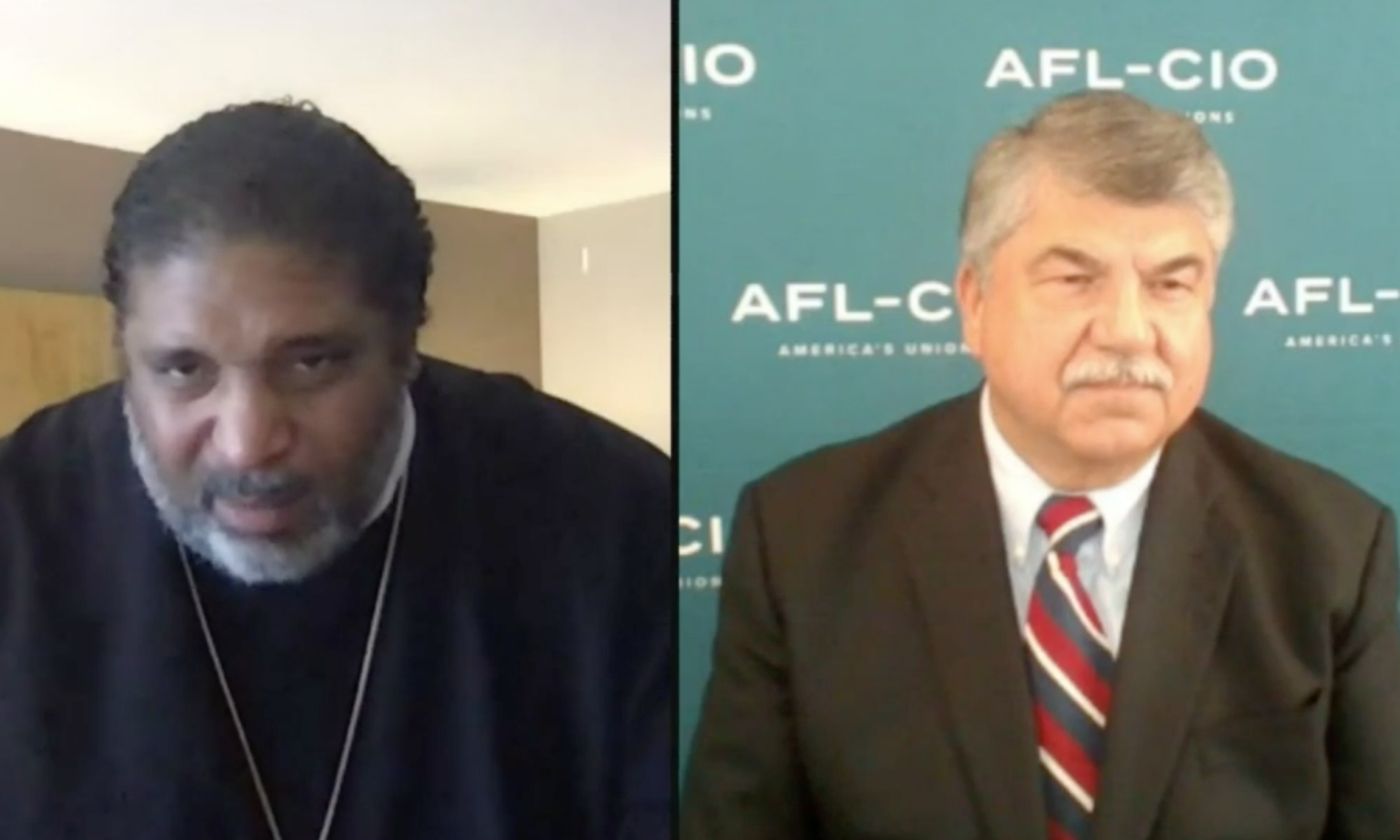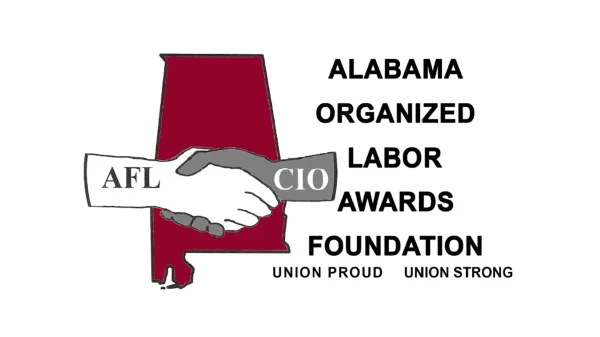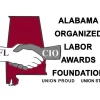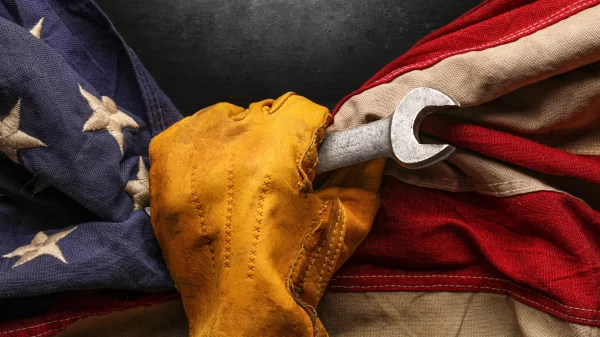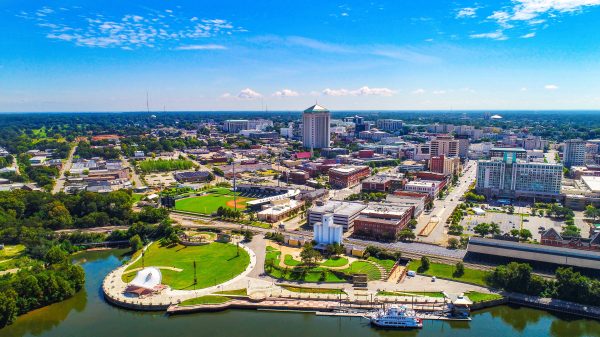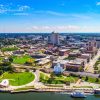The bomb that ripped through the 16th Street Baptist Church 57 years ago was a predictable result of the social divisions of the early 1960s, and the nation is experiencing a similarly dangerous level of polarization now, said two prominent rights advocates who led a virtual ceremony on Tuesday commemorating the infamous event.
Rev. William Barber, who heads the nonprofit Repairers of the Breach and the Poor People’s Campaign, joined Richard Trumka, president of the country’s largest federation of unions, at the church to announce a formal partnership to work for social, racial and economic justice.
Trumka said the labor movement honors the bombing’s four young victims: Addie Mae Collins, Cynthia Wesley, Carole Robertson and Carol Denise McNair.
“But our debt to this community is greater than that,” he said. “On the day the Ku Klux Klan set off the bomb, parts of the labor movement were racially segregated, including in Birmingham. The divisions and hatred that landowners and employers had been sowing since the founding of this country infected our own movement. So when the AFL-CIO fought for the passage of the Civil Rights Act, they were fighting to end discrimination and racism not just by employers, but by our own unions, our own institutions. We were fighting to change ourselves.”
With deep divisions again threatening American lives and democracy, Barber said, it is time for communities of faith to join with other groups struggling for fundamental rights in pursuit of a more perfect vision of the country.
There have always been attempts to defend a status quo that favors some over many others, willing to commit heinous violence to enforce it, he said.
“But we must remember these brutal acts were in violent response to the movement that had been achieved: The first citywide desegregation campaign in the South,” Barber said. “And it happened because faith and labor came together. Faith and labor and moral leaders and poor people came together.”
The killings were perpetrated after the movement had multiple successes by extremists who wanted to go backwards, he said. The achievement of basic rights by some was perceived as a threat to the “peace of Southern society and American society as a whole,” he said, and similar sentiments are being stoked today.
Barber said that the Civil Rights movement is too often talked about exclusively through a Black lens, although that was not the message of its leaders at the time. They emphasized the shared interests of poor people of all ethnicities, and of all marginalized communities.
“In some ways, we’re returning to what is. We’re not building so much new, but we’re embracing what has always been the necessary embrace in times of national crisis, around justice and around fundamental civil rights and economic rights,” he said.
Barber said the issues transcend President Donald Trump and the tribal state of American politics. He said that he meets people around the country of various ideologies who are dismayed with the way things are.
“What people are starting to realize is that those who push and support racist voter suppression, like Trump — it may be targeted at Black people, but the people who use those tactics to get elected, once they get elected they block living wages, they block union rights, they block health care,” Barber said.
He used Alabama as a prime example, with its majority of poor and uninsured people being white. The officials who promote policies that amount to voter suppression or who rally support with dog-whistle racism advance their agendas with lies, he said.
“Something that my grandmother taught me is if you scratch a liar, you find a thief,” Barber said.





































